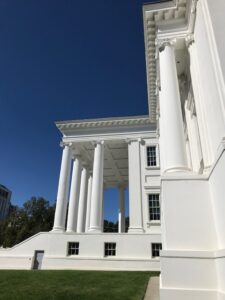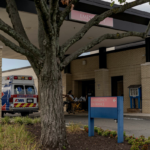 by Jon Baliles
by Jon Baliles
Public safety is one of every locality’s largest and most important responsibilities. If the sidewalks, streets, and neighborhoods are not safe, people go to places where they are. Walkers, joggers, businesses, customers, and everyone else won’t go to places where they feel their safety in in jeopardy.
At the same time, that responsibility of providing that level of safety of the people enforcing the law comes with the burden of being better than the people that are breaking the law and/or causing trouble. It is a two-way street. If you don’t have people enforcing the law, you will always have people breaking it, and then society and streets and neighborhoods break down, and chaos and despair follow. That’s a fact, even though some choose not to acknowledge it.
What is disturbing is what happened on a downtown street last summer when a 911 call led to an encounter with two Richmond Police officers responding to the call and ended up in a takedown and arrest of a gentleman named Mr. Holley at the Maggie Walker Plaza on Adams Street.
You can read the article about this by Luca Powell in the Richmond Times-Dispatch that ran on January 31, but it turns out that was a less-than-complete (to be generous) accounting of the facts. After the article ran, the Commonwealth’s Attorney felt compelled to write a lengthy and detailed email to the newspaper “to correct the inaccuracies and incomplete information. Had you taken the time to contact me directly, I would have provided you with the following information that would have resulted in a more informed and balanced article.”
What should trouble residents of the City is that the story that was reported seems to have omitted more facts of the case than it included. Maybe that was on purpose, maybe it was just sloppy reporting and a lack of proper editing. But the fact that it drew rebukes from both the Commonwealth Attorney’s Office and then a lengthy statement from the Interim Police Chief, Rick Edwards, suggests to me that important parts of the story that were omitted in the newspaper can be relayed in a forum like this newsletter where accuracy and counterpoint do not give way to space for ads and revenue. Continue reading


 by Bill Bolling
by Bill Bolling


